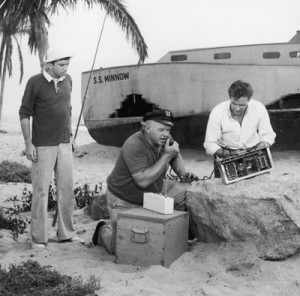Surviving a ministry crisis
The Storm… That’s the ominous title given in my Bible to Acts 27:13-26.
The Shipwreck… That’s what they called verse 27-44, which is even more foreboding, isn’t it?

The question isn’t whether we will encounter storms or shipwrecks that impact our ministries, but what we will do when it happens? I’m encouraged by Paul’s response to an event that could have been life and ministry ending, yet became only a plot-point in the narrative of God’s ultimate purpose for his life. Let’s look at 5 things that got him and the people on the ship through this cataclysmic time:
1. “We should have….but now…” (v. 21 & 22). Whenever we face significant challenges, it’s tempting to point to those things we should have done differently, but we need to keep our focus not on what got us there, but on what is going to get us through.
2. “Do not be afraid…you must stand trial before Caesar…so keep up your courage for I have faith in God that it will happen just as he told me” (v. 23-25). Especially the midst of a crisis, I think it’s important for us to have a prophetic understanding of God’s purpose for our ministries. If God still has something to accomplish through our ministries, He has the power to see them through to that purpose. That understanding will give us supernatural courage to lead through whatever issues may come our way.
3. “Nevertheless, we must run aground on some island” (v. 26). I love Paul’s nonchalance here—he says with a smile: “Have courage, God will save us, but the ship is toast!”. It makes me wonder if sometimes we value the container and vehicle for God’s mission more than God’s mission itself? Let’s remember that the vehicle is simply a tool used to accomplish God’s purpose.
4. “…they lightened the ship by throwing the grain into the sea.” (v. 38). Is there something in our ministry that needs to be thrown into the sea so we can get through the storm? Could we be holding on tightly to the very things that weigh us down and that hinder us from getting through the shipwreck? I think we can become so concerned about hanging onto the resources we’ve been given that we can forget that our ministry does not exist to serve the resource, but the resource is provided to serve God’s purpose in and through the ministry.
5. “Paul ordered those who could swim to jump overboard first and get to land. The rest were to get there on planks or on other pieces of the ship. In this way everyone reached land safely.” (v. 43-44). Even in the midst of calamity, there was a way for everyone to reach the shore safely. Our courageous and calm leadership in the middle of a shipwreck can help the people we lead avoid destruction. I’m encouraged to find that Paul’s leadership recognized that people had differences (some could swim; some couldn’t) and he knew that to get everyone to shore safely required a flexible plan and incremental execution of that plan. And because the plan was adaptable, everyone made it there alive, even if it took a little longer to happen.
While we all pray for smooth sailing in our ministry, when we do encounter “The Storm” and “The Shipwreck” it’s great to know that those can be transformed into “The Salvation Story”, even though sometimes it means the salvation of the mission but not necessarily the mechanism that was carrying it.
